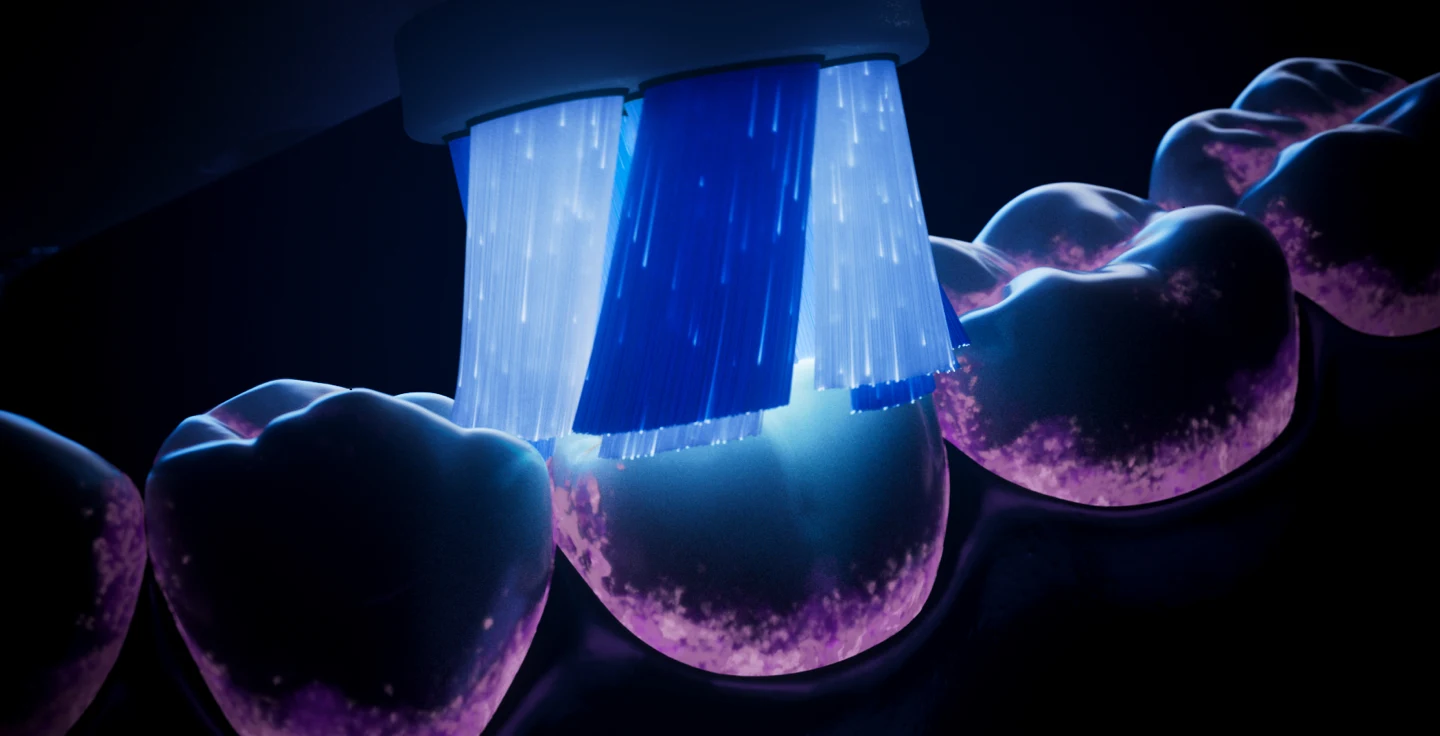Have you noticed a build-up of a black or dark substance on your teeth? It could be black tartar. Black tartar on teeth can form when plaque is left to harden, resulting in the development of calculus, commonly known as tartar.
If left untreated, black tooth plaque can cause serious dental problems like cavities and gum disease. It can also be unsightly to have dark stains on your teeth.
Here, you can learn everything you need to know about black tartar on teeth, including:
Causes
Risks
Symptoms
Treatment
Prevention
Causes of black tartar on teeth
What causes black tartar to form on your teeth? Common causes of black tartar on teeth usually stem from poor oral hygiene.
Plaque forms when bacteria in your mouth mix with leftover food particles, sugars, and saliva to form a sticky film on your teeth. When you brush and floss your teeth, plaque is removed, which is why it is essential to brush with fluoride toothpaste twice a day. If plaque is left to grow on your teeth, it will harden and become tartar.
Tartar is much harder to remove than plaque. It is typically off-white or yellow in colour, but it can become black if it is infiltrated with bacteria.
Other possible causes of black tartar on teeth include:
Damage to tooth enamel
Staining drinks, like coffee and red wine
Foods high in sugar or starch
Risks of black tartar on teeth
If you leave black tartar on your teeth for too long, it can pose some risks to your oral health. Tartar side effects may be uncomfortable and can result in serious dental problems if the tartar is allowed to progress.
Risks of leaving tartar on teeth include:
Inflamed gums: medically called gingivitis, it is early gum disease and can result in serious dental problems later.
Gum disease:if gingivitis is left to progress, it can develop into periodontitis, a more serious form of gum disease. There are also associations between periodontitis and diabetes and heart disease.
Tooth loss: in serious cases, your teeth may be at risk of falling out due to the surrounding bone being infected.
Cavities: black tartar can trap food particles and sugars, creating an environment for decay-inducing bacteria to multiply.
Receding gums: as the gums become inflamed and irritated by black tartar, they may start to pull away from the teeth, exposing more of the tooth root. This can result in tooth hypersensitivity.
Symptoms of Black Tartar on teeth
The most obvious symptom is a black tartar stain on your teeth, usually from pigments produced by bacteria trapped within it. However, more symptoms of tartar on teeth may not be so visible.
These can include:
Hard deposits on teeth: unlike soft plaque, tartar hardens over time due to minerals in saliva.
Bad breath: bacteria in black tartar release toxins and unpleasant odours which can contribute to bad breath.
Irritated gums: tartar can irritate the gums, causing inflammation, redness, swelling, and bleeding.
Sensitive teeth: black tartar build-up near the gumline can expose sensitive tooth roots, making drinking hot and cold fluids and exposure to cold air painful.
Painful chewing: severe gum disease can damage the bone and tissues supporting your teeth, making chewing painful.
Loose teeth: in severe cases, gum disease caused by black tartar can weaken the bone supporting the teeth, leading to loosened teeth.
How to Remove Black Tartar from Teeth
Once it has formed, tartar build-up removal at home becomes challenging. Before tartar forms, you can remove plaque at home by brushing twice a day, using mouthwash, and flossing daily.
However, once a hard tartar build-up on teeth forms, you will need a dental professional to remove it. At the dentist, you can undergo tartar dental cleaning. Dentists remove plaque from teeth by deep cleaning using tooth scaling and root planning techniques. If your tartar is advanced, you may need multiple sessions of teeth cleaning to remove tartar.
How to Prevent Black Tartar on your Teeth
While black tartar can be removed at the dentist, it is best for your oral health to prevent it from forming in the first place.
Not sure how to prevent black tartar on your teeth? The main way to prevent tartar is to practice good oral hygiene daily.
To prevent tartar developing on your teeth, you should:
Brush your teeth twice a day with a soft toothbrush and a fluoride toothpaste.
Floss between your teeth and under your gum lineevery day to remove plaque your toothbrush cannot reach.
Use mouthwash to reduce plaque build-up and limit bacteria growth.
Limit your intake of foods and drinks high in sugar.
Visit your dentist for regular check-ups and dental cleaning.
FAQs
Why does tartar turn black?
Tartar starts off as clear plaque, and over time, minerals in saliva harden the plaque into tartar. Pigments produced by bacteria trapped within tartar can stain it a dark or black colour.
How to remove black tartar from teeth naturally
To remove black tartar from your teeth, you will need to visit your dentist for professional cleaning. They will remove tartar with teeth scaling and if necessary, tooth root planning.
Is black tartar a cavity?
Black tartar itself isn't a cavity, but it can cause it. The trapped bacteria and food particles in tartar create an environment for decay, increasing your risk of developing cavities.
Is black tartar common?
Black tartar isn't uncommon, especially among those with poor oral hygiene. Plaque and tartar are common, but regular dental cleanings can help prevent it from forming.
